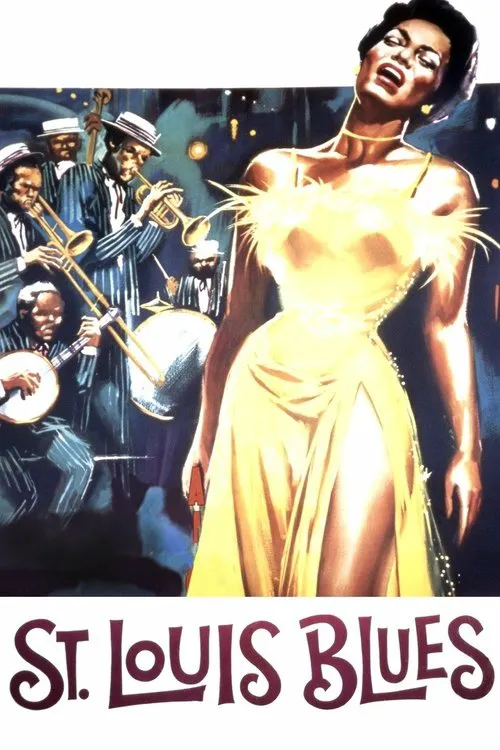St. Louis Blues

Intrigue
In the 1941 American biographical drama film "St. Louis Blues," the life of legendary blues musician W.C. Handy is beautifully woven into a cinematic tapestry, capturing the essence of his musical journey and the trials he faced along the way. The film, named after one of Handy's most famous compositions, explores the complexities of his relationship with his family and his struggle to find his place in the world of music. The story begins in Memphis, where Will Handy, as the film refers to W.C. Handy, grows up surrounded by music. His father, a devout preacher, hopes to instill in Will the values of the church, but the young Handy is drawn to the rhythms and melodies of the city's workers and street musicians. As he grows older, Will becomes increasingly fascinated with the blues, a genre that is not typically tolerated by his father. Despite his father's disapproval, Will finds solace in the music of the streets, where he meets various musicians and learns the intricacies of the blues. The film takes an interesting turn when Will, now a young man, writes a theme song for a local politician, Gogo. Gogo, a stunning singer with a captivating voice, recognizes Will's potential and convinces him to leave Memphis and accompany her to Chicago as her pianist. This marks the beginning of Will's journey as a blues musician, and his decision to leave his family's strict upbringing behind. Will and Gogo's relationship is complex, to say the least. Gogo is depicted as a free-spirited woman who lives for the moment, whereas Will is still grappling with his identity and his place in the world of music. As they navigate the vibrant city of Chicago, they meet various characters, including musicians, dancers, and gangsters, all of whom are drawn to the allure of the blues. Will's music quickly gains popularity, and he becomes known for his unique style and compositions. However, Will's success comes with a price. He becomes estranged from his family, particularly his father, who disapproves of his son's choices. Will's decision to leave Memphis and pursue a career in music is seen as a betrayal by his father, who hopes that Will will follow in his footsteps and become a preacher. The years pass, and Will becomes a successful blues musician. He writes and publishes many songs, including his iconic "St. Louis Blues," which becomes a hit. Despite his success, Will never forgets his humble beginnings and the family he has left behind. When Gogo brings him back to New York to see his music played by a symphony orchestra, Will is reunited with his family, including his father, who finally comes to understand and appreciate his son's contributions to the world of music. The film's climax is a poignant moment of reconciliation between Will and his father. As the orchestra plays Will's composition, his father finally acknowledges his son's genius and the impact his music has had on the world. The scene is a powerful moment of redemption, one that highlights the importance of family and the power of music to bring people together. "St. Louis Blues" is a beautifully crafted film that celebrates the life and legacy of W.C. Handy. With its rich themes and memorable characters, the film provides a captivating portrayal of one of America's greatest musical legends. Through Will's journey, the film explores the complexities of identity, family, and the power of music to bring people together. It is a testament to the enduring impact of W.C. Handy's music and a reminder of the importance of preserving our cultural heritage for future generations.
Critiques
Recommandations




